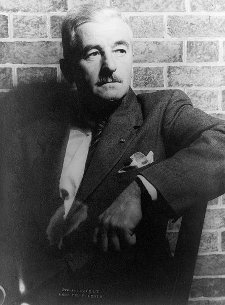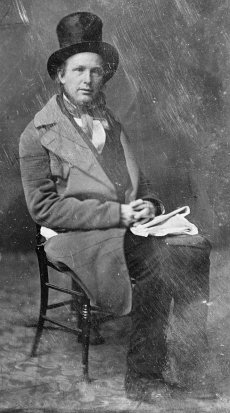Art critic Philip Gilbert Hamerton’s wife found herself sitting next to Alfred, Lord Tennyson one day at a Paris lunch. He told her this story — she records it in her 1896 memoir:
I had occasion to go to Paris with a friend who was supposed to speak French creditably, and who fancied himself a master of it. On the morning following our arrival in the French capital, being somewhat knocked up by the journey, we had a late breakfast at a small side-table of the dining-room, of which we were soon the only occupants, under the watchful and, as I thought, suspicious eyes of a waiter, whose attention had probably been attracted by the conspicuous difference between our stature and garb from that of his little dandified countrymen.
Having caught a slight cold on the passage, I felt more inclined to stay by the fire with a newspaper than to go out, and did so, whilst my friend, who had some business in the town, left me for some time. As I drew my chair up to the hearth I heard the waiter answering with alacrity to some recommendation of my friend’s, ‘Oh, monsieur peut être tranquille, j’y veillerai.’ I thought it was some order about our dinner, and resumed my political studies.
Was it my cold which made me dull and inattentive? It is quite possible, for my eyes kept wandering from my paper, and, strange to say, always met those of the French waiter riveted upon me. At first I felt annoyed: what could be so strange about my person? Then I was irritated, for though that queer little man was making some pretence at dusting or replacing chairs, still his eyes never left me for a moment, and at last, being somewhat drowsy, I had the sensation that one experiences in a nightmare, and thought I had better resort to my room and make up for a shortened night.
No sooner, however, had I got up from my chair than the waiter was entreating me to remain, offering to heap coals on the fire, to bring me another paper or a pillow if I was tired, and ‘Did I wish to write a letter? he would fetch instantly what was required; or should I like something hot for my cold?’ His voice had the strange coaxing tone that we use to pacify children, and made me stare; but I answered angrily that I only wanted a nap, and to be let alone, and I made for the door in spite of his objurgations.
Then he ran in front of me, and barring the door with arms outstretched, besought me to await my friend. This unaccountable behavior had rendered me furious, and now I was determined to force my way out, despite the mad resistance and loud gibberish of the waiter, and I began to use my fists.
It was in the midst of this tremendous row that my astonished friend re-appeared in the dining-room, and was greeted with this exclamation from my adversary: ‘Ah, monsieur, vous voyez, j’ai tenu ma parole: je ne l’ai pas laissé sortir le fou; mais ça n’a pas été sans peine, il était temps que vous arriviez.’
It turned out that my friend, anxious for my comfort and noticing that the fire was getting low, had said in his easy French before leaving, ‘Garçon, surtout ne laissez pas sortir le fou’ (feu) — meaning ‘Don’t let the fire go out,’ and the intelligent foreigner had immediately guessed from my appearance that I was le fou.’
Tennyson offered this as one of a number of anecdotes about him that were current at the time; when she asked whether it were true, he smiled and said, “I think it is capital; you will have to guess.”


